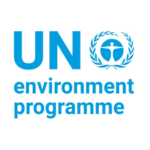Regional Resilience Advisor Consultant
Employment Info
Regional Resilience Advisor Consultant
Company Details
Name: SoCha
Industry: Non-Profit Organization Management
Description: SoCha (a portmanteau of Social and Change) is an independent Monitoring, Evaluation and Learning (ME&L) firm that provides bespoke solutions to social challenges. Since our inception in 2010, we have grown from a consortium of globally-recognized experts who specialize in evaluating the effectiveness of development assistance, to a full-fledged ME&L services firm that specializes in advancing innovative methodologies and changing the way donors find solutions to social problems. Our main sectors of expertise are education, youth and training, maternal health, rural development, local governance and stabilization. We are registered in the US, but to be more responsive to our clients and more in touch with the realities on the ground, we operate two regional offices (in Tanzania and Thailand).
Job Description
Roles and Responsibilities
The Regional Resilience Advisor will be responsible for the following tasks:
Technical Guidance:
- Provide technical guidance to field teams managing RFSAs and ER4 programs on the implementation of key components of the Graduation Approach, such as asset transfer, skills training, savings groups, and consumption support and the timing of each component.
- Provide technical guidance for other early recovery, risk reduction, and resilience-related programs in the region.
- Potentially lead and convene Technical Steering Committees to review context-appropriate Graduation Approach interventions and ensure they are informed by evidence-based practices.
Program Learning & Capacity Building:
- Lead the development and execution of learning strategies that align with the Graduation Approach to ensure high-quality programming and to foster continuous improvement in RFSA and ER4 programs.
- Design and facilitate capacity-building activities for staff and partners, including training, workshops, and seminars on the Graduation Approach and its application in food security and poverty reduction.
- Support the documentation of program learnings, challenges, and innovations, and share findings within the organization and with external stakeholders.
- Regularly monitor and assess the effectiveness of learning activities and incorporate feedback to improve learning outcomes.
Knowledge Management:
- Serve as the main point of contact for USAID BHA in the region for all learning-related inquiries for the Graduation Approach and provide expert advice on applying the Graduation Approach to improve program outcomes.
- Develop and maintain a repository of tools, resources, and regional best practices for the Graduation Approach to support RFSA and ER4 program implementation.
- Ensure the integration of gender-sensitive and inclusive approaches into learning activities to address the specific needs of marginalized groups including women, youth, and persons with disabilities.
Monitoring, Evaluation & Strategic Learning/Adapting:
- Contribute to the design and implementation of monitoring and evaluation systems that track the effectiveness of the Graduation Approach for strategic learning and adaptation in reducing poverty and increasing food security.
- Support the collection and analysis of qualitative and quantitative data on program impact, and use these findings to adjust strategies and enhance the Graduation Approach’s application (including reviewing theories of change).
- Prepare reports and presentations to share lessons learned, progress, and challenges with senior management, donors, and stakeholders.
Collaboration & Stakeholder Engagement:
- Provide leadership and motivation to program staff, partners, and stakeholders to facilitate regular dialogue and knowledge-sharing on the progress and challenges of implementing the Graduation Approach.
- Represent USAID BHA RFSA and ER4 programs in learning forums, conferences, and workshops, ensuring that the organization’s work in poverty graduation and food security is visible and recognized.
- Support advocacy and partnership-building efforts by sharing evidence and learnings that demonstrate the impact of the Graduation Approach in alleviating poverty and food insecurity.
Qualifications and Skills
- Education: Master’s degree or higher in international development, social sciences, economics, agriculture, public health, or a related field. PhD preferred.
- At least ten (10) years of relevant experience in poverty reduction, food security, or development programs, including at least four (4) years with a focus on the application of the Graduation Approach or similar integrated poverty reduction models in a leadership role.
- Proven experience in designing and/or facilitating learning and capacity-building initiatives, including training and workshops for diverse stakeholders, is preferred.
- Experience working directly with international donor-funded programs is required, particularly with the USAID BHA (or its legacy offices OFDA and FFP), is preferred.
- Experience working on large-scale programs and grants management in the East and Central Africa region, with an understanding of the socio-economic challenges in the region.
- Strong familiarity with gender, social inclusion, and resilience frameworks in development work used to reduce reliance on humanitarian assistance.
- Proficiency in using knowledge management tools, databases, and digital platforms to disseminate learning and best practices.
- Demonstrated experience in leading a team and managing multiple projects simultaneously, with strong attention to detail, time management, and resource allocation.
- Strong background in monitoring, evaluation, and learning, with a demonstrated ability to apply data to improve program strategies and outcomes.
- Experience in managing relationships with multiple stakeholders, including local communities, government agencies, donors, and international organization
Education: Degree, Diploma
Employment Type: Full Time
Featured jobs
Get the latest news, updates and tips






